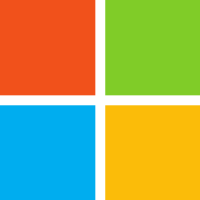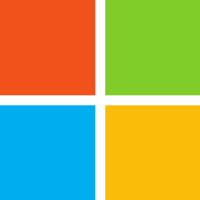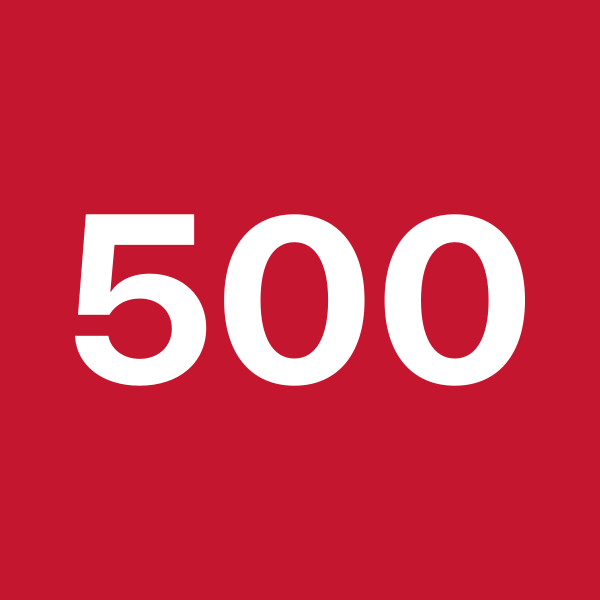
Microsoft Corp
NASDAQ:MSFT


| US |

|
Johnson & Johnson
NYSE:JNJ
|
Pharmaceuticals
|
| US |

|
Berkshire Hathaway Inc
NYSE:BRK.A
|
Financial Services
|
| US |

|
Bank of America Corp
NYSE:BAC
|
Banking
|
| US |

|
Mastercard Inc
NYSE:MA
|
Technology
|
| US |

|
UnitedHealth Group Inc
NYSE:UNH
|
Health Care
|
| US |

|
Exxon Mobil Corp
NYSE:XOM
|
Energy
|
| US |

|
Pfizer Inc
NYSE:PFE
|
Pharmaceuticals
|
| US |

|
Palantir Technologies Inc
NYSE:PLTR
|
Technology
|
| US |

|
Nike Inc
NYSE:NKE
|
Textiles, Apparel & Luxury Goods
|
| US |

|
Visa Inc
NYSE:V
|
Technology
|
| CN |

|
Alibaba Group Holding Ltd
NYSE:BABA
|
Retail
|
| US |

|
3M Co
NYSE:MMM
|
Industrial Conglomerates
|
| US |

|
JPMorgan Chase & Co
NYSE:JPM
|
Banking
|
| US |

|
Coca-Cola Co
NYSE:KO
|
Beverages
|
| US |

|
Walmart Inc
NYSE:WMT
|
Retail
|
| US |

|
Verizon Communications Inc
NYSE:VZ
|
Telecommunication
|
Utilize notes to systematically review your investment decisions. By reflecting on past outcomes, you can discern effective strategies and identify those that underperformed. This continuous feedback loop enables you to adapt and refine your approach, optimizing for future success.
Each note serves as a learning point, offering insights into your decision-making processes. Over time, you'll accumulate a personalized database of knowledge, enhancing your ability to make informed decisions quickly and effectively.
With a comprehensive record of your investment history at your fingertips, you can compare current opportunities against past experiences. This not only bolsters your confidence but also ensures that each decision is grounded in a well-documented rationale.
Do you really want to delete this note?
This action cannot be undone.

| 52 Week Range |
387.1549
465.7864
|
| Price Target |
|
We'll email you a reminder when the closing price reaches USD.
Choose the stock you wish to monitor with a price alert.

|
Johnson & Johnson
NYSE:JNJ
|
US |

|
Berkshire Hathaway Inc
NYSE:BRK.A
|
US |

|
Bank of America Corp
NYSE:BAC
|
US |

|
Mastercard Inc
NYSE:MA
|
US |

|
UnitedHealth Group Inc
NYSE:UNH
|
US |

|
Exxon Mobil Corp
NYSE:XOM
|
US |

|
Pfizer Inc
NYSE:PFE
|
US |

|
Palantir Technologies Inc
NYSE:PLTR
|
US |

|
Nike Inc
NYSE:NKE
|
US |

|
Visa Inc
NYSE:V
|
US |

|
Alibaba Group Holding Ltd
NYSE:BABA
|
CN |

|
3M Co
NYSE:MMM
|
US |

|
JPMorgan Chase & Co
NYSE:JPM
|
US |

|
Coca-Cola Co
NYSE:KO
|
US |

|
Walmart Inc
NYSE:WMT
|
US |

|
Verizon Communications Inc
NYSE:VZ
|
US |
This alert will be permanently deleted.
 Microsoft Corp
Microsoft Corp
Microsoft Corp





In the dynamic world of technology, Microsoft Corp. has consistently positioned itself at the forefront of innovation and enterprise solutions since its founding in 1975 by Bill Gates and Paul Allen. Evolving from its initial foray into personal computing software, Microsoft engineered a transformation in the tech ecosystem with its Windows operating system. Today, it is a behemoth in various facets of the industry, from cloud computing with Azure to productivity software suites like Microsoft Office. Unlike the mythic tales of overnight success, Microsoft's ascent reflects strategic adaptability and foresight, crafting a narrative of calculated pivots and robust diversification.
The company’s business model intricately weaves together a mélange of software products, services, and hardware. Its revenue streams are diversified across licensing fees, subscriptions, cloud services, and hardware sales. Azure, Microsoft's cloud platform, stands as a stalwart in the cloud computing arena, offering a multitude of services to enterprises, outpacing competitors through aggressive innovation and enterprise engagement. Meanwhile, the Office suite's transition to a subscription-based model underlines a shift toward a recurring revenue stream, which has fortified its financial stability. Microsoft's success isn’t merely rooted in software; its ventures into gaming with Xbox and acquisitions like LinkedIn signify a robust portfolio, leveraging a vast ecosystem to sustain growth and relevance across an array of markets.

In the dynamic world of technology, Microsoft Corp. has consistently positioned itself at the forefront of innovation and enterprise solutions since its founding in 1975 by Bill Gates and Paul Allen. Evolving from its initial foray into personal computing software, Microsoft engineered a transformation in the tech ecosystem with its Windows operating system. Today, it is a behemoth in various facets of the industry, from cloud computing with Azure to productivity software suites like Microsoft Office. Unlike the mythic tales of overnight success, Microsoft's ascent reflects strategic adaptability and foresight, crafting a narrative of calculated pivots and robust diversification.
The company’s business model intricately weaves together a mélange of software products, services, and hardware. Its revenue streams are diversified across licensing fees, subscriptions, cloud services, and hardware sales. Azure, Microsoft's cloud platform, stands as a stalwart in the cloud computing arena, offering a multitude of services to enterprises, outpacing competitors through aggressive innovation and enterprise engagement. Meanwhile, the Office suite's transition to a subscription-based model underlines a shift toward a recurring revenue stream, which has fortified its financial stability. Microsoft's success isn’t merely rooted in software; its ventures into gaming with Xbox and acquisitions like LinkedIn signify a robust portfolio, leveraging a vast ecosystem to sustain growth and relevance across an array of markets.
Earnings Calls
Management

Bradford L. Smith is a prominent figure in the technology sector, serving as the President and Chief Legal Officer (CLO) of Microsoft Corporation. In his capacity, Smith plays a critical role in guiding the company's legal, corporate affairs, and external communications strategies. He joined Microsoft in 1993 and has since been instrumental in shaping the company's policies regarding regulatory compliance, privacy, and technology law. Smith graduated from Princeton University in 1981 and later earned his law degree from Columbia University in 1985. Before joining Microsoft, he worked as an associate and then partner at the law firm Covington & Burling in Washington, D.C. At Microsoft, he has been a leading advocate for issues like cybersecurity, digital privacy, and corporate responsibility in the tech industry. Brad Smith is also recognized for his efforts in bridging technology with public policy, emphasizing the need for ethical standards and accountability in the digital age. He has been influential in Microsoft's initiatives to ensure accessibility and promote inclusive practices both within the company and through its products. Smith co-authored "Tools and Weapons: The Promise and the Peril of the Digital Age," demonstrating his expertise and thought leadership on the societal impacts of technology.

Smith graduated from Princeton University in 1981 and later earned his law degree from Columbia University in 1985. Before joining Microsoft, he worked as an associate and then partner at the law firm Covington & Burling in Washington, D.C. At Microsoft, he has been a leading advocate for issues like cybersecurity, digital privacy, and corporate responsibility in the tech industry.
Brad Smith is also recognized for his efforts in bridging technology with public policy, emphasizing the need for ethical standards and accountability in the digital age. He has been influential in Microsoft's initiatives to ensure accessibility and promote inclusive practices both within the company and through its products. Smith co-authored "Tools and Weapons: The Promise and the Peril of the Digital Age," demonstrating his expertise and thought leadership on the societal impacts of technology.

Judson B. Althoff is a prominent executive at Microsoft Corporation, where he has served as Executive Vice President and Chief Commercial Officer. He joined Microsoft in March 2013 and has been instrumental in reshaping the company’s sales and marketing strategies, particularly in how Microsoft engages with enterprise customers. Before his current role, Althoff led Microsoft's Worldwide Commercial Business, focusing on the company's commercial strategy across sales and marketing, and driving the growth of cloud and other enterprise services. He has championed digital transformation for businesses, underscoring the importance of cloud computing and digital capabilities in modern enterprises. Prior to joining Microsoft, Althoff had a significant career at Oracle Corporation, where he held various leadership roles, including Senior Vice President of Worldwide Alliances, Channels, and Embedded Sales. His experience at Oracle focused on building and managing partner ecosystems and driving large-scale sales growth. Althoff is known for his customer-centric approach and strong leadership skills. His contributions have been essential in Microsoft's evolution towards a cloud-first, mobile-first world, aligning the company's offerings with the changing technology landscape. He holds a degree in Mechanical Engineering from the Illinois Institute of Technology. Althoff is widely regarded in the industry for his strategic insight and ability to drive business results through innovation and collaboration.

Before his current role, Althoff led Microsoft's Worldwide Commercial Business, focusing on the company's commercial strategy across sales and marketing, and driving the growth of cloud and other enterprise services. He has championed digital transformation for businesses, underscoring the importance of cloud computing and digital capabilities in modern enterprises.
Prior to joining Microsoft, Althoff had a significant career at Oracle Corporation, where he held various leadership roles, including Senior Vice President of Worldwide Alliances, Channels, and Embedded Sales. His experience at Oracle focused on building and managing partner ecosystems and driving large-scale sales growth.
Althoff is known for his customer-centric approach and strong leadership skills. His contributions have been essential in Microsoft's evolution towards a cloud-first, mobile-first world, aligning the company's offerings with the changing technology landscape.
He holds a degree in Mechanical Engineering from the Illinois Institute of Technology. Althoff is widely regarded in the industry for his strategic insight and ability to drive business results through innovation and collaboration.

Christopher David Young is not a widely recognized public figure or known executive officer at Microsoft Corporation. If you were referring to a specific individual at Microsoft, additional context or correct details might be necessary to provide a comprehensive biography or overview. Without further information, it is difficult to identify or describe this person in relation to Microsoft Corp. If you are referring to someone specific, please check the spelling or provide more context. Otherwise, the statement is "FALSE."


Carolina Dybeck Happe is a renowned Swedish executive known for her expertise in financial management and corporate leadership. She serves as the Chief Financial Officer (CFO) and Executive Vice President of General Electric (GE), a role she assumed in early 2020. Before her tenure at GE, she was noteworthy for her role as CFO at A.P. Moller-Maersk, a leading global conglomerate in shipping and energy, where she was instrumental in steering financial strategies and transformation initiatives. Dybeck Happe's career also includes significant roles at Assa Abloy, where she worked for over a decade in various financial and managerial positions, including CFO. Her extensive experience spans multiple sectors and global markets, underscoring her adeptness in navigating complex financial landscapes. She is recognized for her strong leadership qualities, analytical skills, and ability to drive performance and strategic growth in corporations. Her academic credentials include a Master of Science in Business and Economics from Uppsala University in Sweden. She is highly respected in the industry for her contributions towards enhancing fiscal responsibility and fostering innovative financial practices. Prior to joining GE, Carolina Dybeck Happe was slated to join Microsoft, but she chose to accept the role at GE instead.

Dybeck Happe's career also includes significant roles at Assa Abloy, where she worked for over a decade in various financial and managerial positions, including CFO. Her extensive experience spans multiple sectors and global markets, underscoring her adeptness in navigating complex financial landscapes.
She is recognized for her strong leadership qualities, analytical skills, and ability to drive performance and strategic growth in corporations. Her academic credentials include a Master of Science in Business and Economics from Uppsala University in Sweden. She is highly respected in the industry for her contributions towards enhancing fiscal responsibility and fostering innovative financial practices. Prior to joining GE, Carolina Dybeck Happe was slated to join Microsoft, but she chose to accept the role at GE instead.

Alice L. Jolla serves as the Corporate Vice President and Chief Accounting Officer of Microsoft Corporation. In her role, she is responsible for Microsoft's accounting operations, including corporate financial reporting, financial systems, controls, and global accounting functions. With a background in accounting and a deep understanding of the tech industry, Jolla has been influential in maintaining and enhancing the company's financial integrity and reporting standards. Before assuming her current position, Alice Jolla held various leadership roles within Microsoft's finance organization, which equipped her with extensive experience in financial planning and analysis, internal controls, and regulatory compliance. Her strategic insight and expertise in these areas have been critical in supporting Microsoft's financial growth and compliance objectives. Alice L. Jolla is recognized for her commitment to fostering a culture of transparency and accountability within the company. She actively engages in initiatives that promote diversity and inclusion within the corporate finance field, highlighting her leadership both within Microsoft and in the broader business community.

Before assuming her current position, Alice Jolla held various leadership roles within Microsoft's finance organization, which equipped her with extensive experience in financial planning and analysis, internal controls, and regulatory compliance. Her strategic insight and expertise in these areas have been critical in supporting Microsoft's financial growth and compliance objectives.
Alice L. Jolla is recognized for her commitment to fostering a culture of transparency and accountability within the company. She actively engages in initiatives that promote diversity and inclusion within the corporate finance field, highlighting her leadership both within Microsoft and in the broader business community.

James Kevin Scott is known for his role as the Chief Technology Officer (CTO) at Microsoft Corporation. He joined Microsoft in 2017, bringing with him a wealth of experience in leading technology teams and driving innovation in the tech industry. Before joining Microsoft, Kevin Scott was Vice President of Engineering and Operations at LinkedIn, where he played a crucial role in building the company’s technology infrastructure and expanding its engineering teams. His leadership was instrumental in scaling LinkedIn’s operations as the platform grew rapidly in popularity. At Microsoft, Kevin Scott is responsible for driving the company’s technological direction and overseeing strategies related to areas like artificial intelligence, cloud computing, and hardware development. He works closely with other executives to align Microsoft’s technology objectives with its business goals. Scott holds a Bachelor of Science in Computer Science from Lynchburg College, a Master of Science in Computer Science from Wake Forest University, and he completed advanced studies in Computer Science at the University of Virginia. Known for his deep technical expertise and strategic vision, Scott also emphasizes the importance of ethical considerations in technology development, particularly concerning AI. In addition to his work at Microsoft, Kevin Scott is an advocate for fostering talent in the engineering community and has been involved in various initiatives to encourage education and diversity in tech fields. His contributions to both Microsoft and the broader technology landscape are widely recognized.

Before joining Microsoft, Kevin Scott was Vice President of Engineering and Operations at LinkedIn, where he played a crucial role in building the company’s technology infrastructure and expanding its engineering teams. His leadership was instrumental in scaling LinkedIn’s operations as the platform grew rapidly in popularity.
At Microsoft, Kevin Scott is responsible for driving the company’s technological direction and overseeing strategies related to areas like artificial intelligence, cloud computing, and hardware development. He works closely with other executives to align Microsoft’s technology objectives with its business goals.
Scott holds a Bachelor of Science in Computer Science from Lynchburg College, a Master of Science in Computer Science from Wake Forest University, and he completed advanced studies in Computer Science at the University of Virginia. Known for his deep technical expertise and strategic vision, Scott also emphasizes the importance of ethical considerations in technology development, particularly concerning AI.
In addition to his work at Microsoft, Kevin Scott is an advocate for fostering talent in the engineering community and has been involved in various initiatives to encourage education and diversity in tech fields. His contributions to both Microsoft and the broader technology landscape are widely recognized.

Brett Iversen is a prominent figure at Microsoft Corporation, known for his significant contributions in the field of investor relations. He serves as the General Manager of Investor Relations at Microsoft, a role in which he is responsible for communicating and managing relationships with the investing community. Iversen plays a key role in articulating Microsoft's financial performance, strategies, and business initiatives to investors, analysts, and stakeholders. His expertise helps in ensuring that the financial markets are well-informed about Microsoft's growth and value propositions. With a strong background in finance and strategic communications, Iversen's work supports Microsoft's mission by fostering transparency and trust with its shareholders.


Hossein Nowbar is a prominent executive at Microsoft Corporation, where he has held several key legal and compliance roles. As a corporate vice president, Nowbar serves as Microsoft's Deputy General Counsel. He plays an integral role in leading the company's legal and corporate affairs, focusing on navigating the complex regulatory landscape affecting Microsoft’s global operations. Nowbar's responsibilities include overseeing legal matters related to corporate governance, compliance, and ethics. He has been instrumental in shaping corporate strategy through his legal expertise, ensuring that Microsoft adheres to the highest standards of legal integrity and ethical conduct. Before assuming his current role, Nowbar held various senior legal positions within Microsoft, contributing to significant legal and business developments across the company. His prior experience also includes roles in private practice and other corporate legal departments, which have equipped him with extensive knowledge and skills in corporate law and governance. His leadership within Microsoft has been vital in steering the company's legal strategies and ensuring compliance with international regulations. Known for his strategic vision and adept legal acumen, Nowbar continues to guide Microsoft's global legal and compliance initiatives effectively.

Nowbar's responsibilities include overseeing legal matters related to corporate governance, compliance, and ethics. He has been instrumental in shaping corporate strategy through his legal expertise, ensuring that Microsoft adheres to the highest standards of legal integrity and ethical conduct.
Before assuming his current role, Nowbar held various senior legal positions within Microsoft, contributing to significant legal and business developments across the company. His prior experience also includes roles in private practice and other corporate legal departments, which have equipped him with extensive knowledge and skills in corporate law and governance.
His leadership within Microsoft has been vital in steering the company's legal strategies and ensuring compliance with international regulations. Known for his strategic vision and adept legal acumen, Nowbar continues to guide Microsoft's global legal and compliance initiatives effectively.

Frank X. Shaw is the Corporate Vice President of Communications at Microsoft Corp. In this role, Shaw oversees the company’s communications strategies on a global scale, helping to shape and convey Microsoft's narrative across various platforms. With a career spanning several decades in both technology and public relations, he has been instrumental in managing communications for large organizations. Before joining Microsoft, Shaw held key positions at Waggener Edstrom Worldwide, where he worked closely with technology clients, including Microsoft, enhancing his expertise in tech communications. His experience in integrated communications strategies has been critical in navigating the complex landscape of technology advancements and how they are communicated to the public. Shaw is known for his ability to distill complex technological concepts into understandable messaging and is active on various social media platforms, where he engages with the tech community and shares insights about Microsoft and the tech industry in general. His leadership in communications has been crucial in maintaining and enhancing Microsoft’s brand reputation worldwide.

Before joining Microsoft, Shaw held key positions at Waggener Edstrom Worldwide, where he worked closely with technology clients, including Microsoft, enhancing his expertise in tech communications. His experience in integrated communications strategies has been critical in navigating the complex landscape of technology advancements and how they are communicated to the public.
Shaw is known for his ability to distill complex technological concepts into understandable messaging and is active on various social media platforms, where he engages with the tech community and shares insights about Microsoft and the tech industry in general. His leadership in communications has been crucial in maintaining and enhancing Microsoft’s brand reputation worldwide.

Takeshi Numoto is a prominent executive at Microsoft Corporation, known for his leadership and strategic vision. He has played a significant role in the company's marketing and product management efforts. Numoto initially joined Microsoft in 1997 and has held various pivotal positions within the company, contributing significantly to its growth and product offerings. One of his notable roles was as the Corporate Vice President of Cloud and Enterprise Marketing, where he was responsible for driving the company’s marketing strategy for cloud services and enterprise technology products. His leadership helped in positioning Microsoft as a leader in the cloud computing market, especially with services like Microsoft Azure. Numoto is recognized for his deep understanding of both global markets and technological trends, which has been crucial in aligning Microsoft's product strategies with customer needs and industry shifts. Before his focus on marketing, he also served in Microsoft’s Office division where he contributed to product management and planning. His contributions have been instrumental in the transition and growth of some of Microsoft's key business areas, cementing the company’s position in the competitive landscape of technology solutions.

One of his notable roles was as the Corporate Vice President of Cloud and Enterprise Marketing, where he was responsible for driving the company’s marketing strategy for cloud services and enterprise technology products. His leadership helped in positioning Microsoft as a leader in the cloud computing market, especially with services like Microsoft Azure.
Numoto is recognized for his deep understanding of both global markets and technological trends, which has been crucial in aligning Microsoft's product strategies with customer needs and industry shifts. Before his focus on marketing, he also served in Microsoft’s Office division where he contributed to product management and planning.
His contributions have been instrumental in the transition and growth of some of Microsoft's key business areas, cementing the company’s position in the competitive landscape of technology solutions.






























 You don't have any saved screeners yet
You don't have any saved screeners yet
